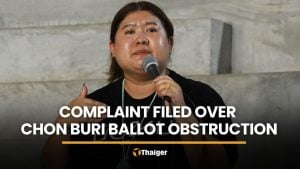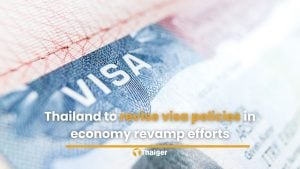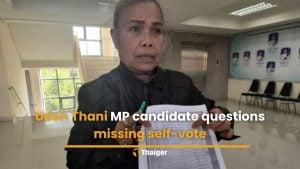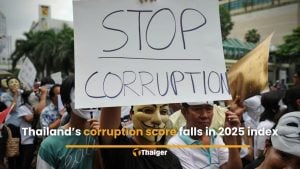Ponzi schemes in the crosshairs for DSI, Finance Ministry

Sometimes cracking down on scam crimes just creates smarter criminals. The Ministry of Finance and the Department of Special Investigation (DSI) are teaming up to crack down on new forms of the classic Ponzi scheme. The director-general of the Fiscal Policy Office announced that the ministry was meeting with the DSI to discuss updates on the laws regarding new scams.
In a series of consultations, the departments worked together to go over new schemes criminals are using to fleece victims. The DSI wants to ensure that there are appropriate laws and legislation on the books to address and prosecute these crimes.
For example, a recent Ponzi scheme bilked thousands of victims out of an estimated two billion baht using the Forex-3D foreign exchange group. Minister of Finance Arkhom Termpittayapaisith asked to make sure legal loopholes were closed so a scam like that could be stopped and prosecuted.
The goal of the coordination with the ministry is to broaden existing laws to make sure they cover new emerging Ponzi schemes. Otherwise, con artists might be able to scam huge amounts of money from their targets without technically breaking the law or committing any illegal acts.
Ponzi scheme prosecution falls under the purview of both the Ministry of Finance and the Ministry of Interior. They jointly enforce any plan that defrauds at least ten or more people by soliciting them to invest in goods or services that don’t actually exist.
They lure victims with promises of higher returns than money sitting in the bank by investing their money. But whatever amazing investment the scammer offers doesn’t actually exist. The Ponzi scheme is able to keep perpetuating by taking a portion of the next person’s investment to pay as fake dividends to the last investor. By continually cycling a porting of the money taken, a scammer can keep adding victims and keep the illusion of income going for quite some time.
People charged with Ponzi schemes can face fines as low as 50,000 baht and as high as 1 million baht. They can also be given prison sentences of between five and ten years.
Latest Thailand News
Follow The Thaiger on Google News:


























